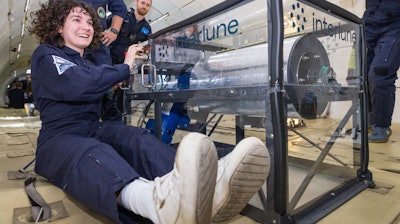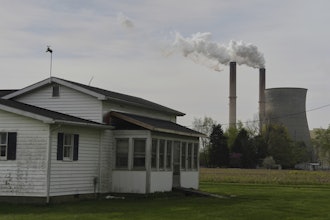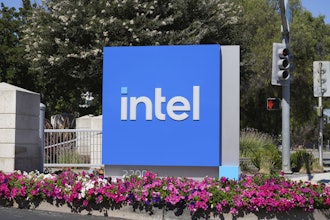
Interlune, a natural resources company, today announced that it received a grant through NASA's TechFlights solicitation to advance its proprietary technology to beneficiate lunar soil, or regolith. Beneficiation is the process of taking a raw material (in this case, lunar regolith) and improving its chemical and physical properties in preparation for extracting valuable resources from it. Lunar regolith beneficiation is strategically important for use in rocket propulsion, construction, life support, and other activities that support a long-term presence on the Moon.
Interlune aims to be the first company to commercialize natural resources from space, starting with Helium-3 from the Moon, which it will sell to commercial and government customers in quantum computing, national security, medical imaging, and fusion energy markets.
Currently, the state-of-the-art for extracting valuable resources from lunar regolith requires excessive amounts of energy, a scarce resource on the Moon. NASA's Space Technology Mission Directorate (STMD) outlines the need for in-situ resource utilization (ISRU) for construction, advanced manufacturing, and production of fluids and gases for propellant and life support.
Interlune's core intellectual property includes novel technologies for the excavation, beneficiation, and other processing of industrial quantities of regolith to extract valuable resources. Its harvester is smaller, lighter, and requires less power than other industry concepts, making it less expensive to transport to the Moon and operate once it's there.
Interlune will use this TechFlights grant to test its beneficiation technology in a simulated lunar environment, including regolith simulants in a vacuum and lunar environment. The tests will analyze tradeoffs in size, weight, and power required for different levels of performance using parabolic flights. Interlune will use the results to plan for scaling its technology to handle multiple tons of regolith.
In March of this year, Interlune announced $18 million in seed funding, the most recent round led by Alexis Ohanian's venture firm Seven Seven Six. In 2023, the company received a National Science Foundation (NSF) Small Business Innovation Research (SBIR) Phase I award to operationalize technology to size and sort lunar regolith.






















